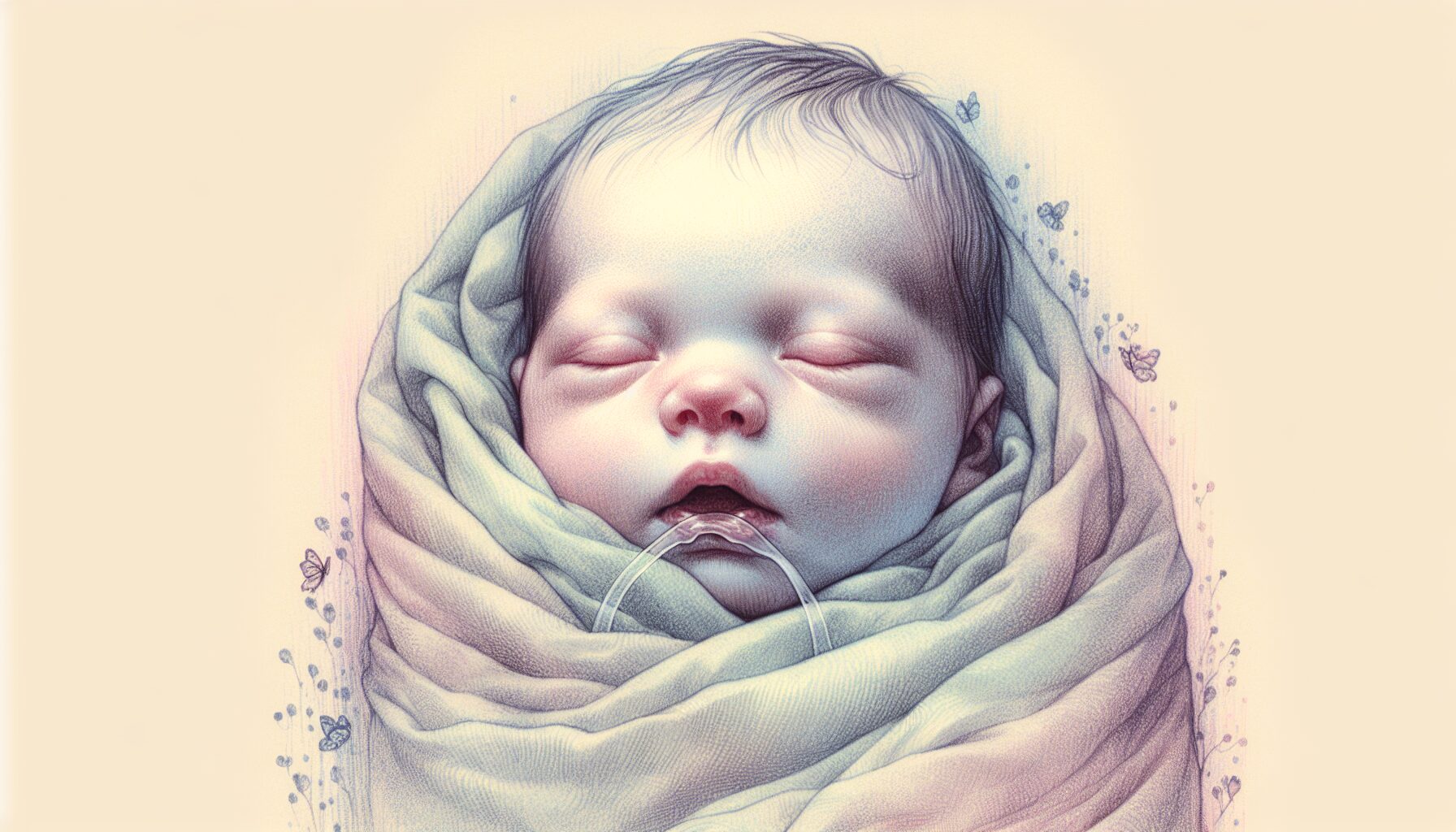Facing newborn seizures possibly linked to medical negligence can be overwhelming. Newborn seizures lawyers focus on such trauma, advocating for your family’s rights and striving for appropriate compensation. This article will guide you through the importance of their assistance, the pursuit of a malpractice claim, and the support offered to your family during this distressing time.
Key Takeaways
- Neonatal seizures can result from various causes, including birth injuries like hypoxic-ischemic encephalopathy and traumatic brain injuries, and require immediate attention and monitoring.
- Medical malpractice in newborn seizure cases is identified by deviations from the standard of care that cause injury, and experienced lawyers can hold responsible parties accountable while seeking justice for affected families.
- Newborn seizures lawyers play a crucial role in guiding families through birth injury cases, helping to secure compensation for medical costs, suffering, and long-term care, often on a contingency fee basis.
At The Pagan Law Firm, we understand the overwhelming challenges of facing newborn seizures possibly linked to medical negligence. Our New York medical malpractice lawyers are dedicated to advocating for your family’s rights and pursuing appropriate compensation. We recognize the importance of providing support during this distressing time and guiding you through the complexities of a malpractice claim. Contact us today to schedule a consultation and take the first step toward securing your family’s future.
Understanding Neonatal Seizures and Their Causes

Newborns can be seriously affected by neonatal seizures, which are a significant medical concern. To safeguard the infant’s well-being, these seizures necessitate immediate medical attention and close monitoring. These involuntary jerking movements are caused by abnormal electrical patterns in the brain, typically occurring within the central nervous system of newborns. Recognizing neonatal seizures can be challenging, as they may not show physical symptoms and are sometimes only detected by rhythmic epileptiform activity on an EEG.
The causes of neonatal seizures are varied, ranging from genetic disorders to environmental factors. Notably, birth injuries like hypoxic-ischemic encephalopathy (HIE) or traumatic brain injuries can lead to seizure disorders in newborns. This underscores the need for diligent prenatal care and appropriate medical interventions during labor and delivery.
Types of Newborn Seizures
Newborn seizures, also known as infant seizures, come in various forms, most commonly including:
- Subtle seizures
- Clonic seizures
- Tonic seizures
- Myoclonic seizures
- Infantile spasms
On the other hand, clonic seizures present as rhythmic jerking movements isolated to limbs, face, or other body parts. Tonic seizures provoke abrupt muscle stiffening, affecting 5% of newborns. Myoclonic seizures, experienced by 20% of newborns, can manifest as:
- Sudden single jerks affecting limbs
- Repetitive jerks affecting limbs
- Sudden single jerks affecting fingers
- Repetitive jerks affecting fingers
- Sudden single jerks affecting the entire body
- Repetitive jerks affecting the entire body
Despite their name, infantile spasms can occur in newborns, recognizable as short jerking spells of extension or flexion.
Birth Injuries Leading to Seizures
Birth injuries leading to seizures can be caused by a variety of factors. One of the most common is oxygen deprivation during delivery, such as from umbilical cord compression or placental issues. This can lead to hypoxic-ischemic encephalopathy (HIE) and subsequent seizures. Traumatic brain injury during birth, including those caused by cephalopelvic disproportion, macrosomia, and misuse of forceps or vacuum extractors, can also result in seizure activity.
In addition to these, medical malpractice during prenatal care or delivery can lead to seizures in the newborn. This could be due to failure to screen for or treat maternal infections, resulting in inadequate care. Understanding these causes and their link to newborn seizures is crucial for families seeking justice for their affected children.
👉Also Read: Navigating Legal Avenues: Birth Injury Claims and Infant Seizures
Identifying Medical Malpractice in Newborn Seizure Cases
Medical malpractice occurs when there is a failure by medical staff to adhere to the standard of care, leading to injury and subsequent seizure disorders in newborns. Identifying medical malpractice in newborn seizure cases involves determining how the injury occurred and whether it could have been prevented.
The significance of identifying this cannot be emphasized enough. It is key to:
- Holding responsible medical providers accountable for seizures caused by medical mistakes
- Thwarting future instances of medical negligence
- Securing justice for impacted families
Examples of Negligent Actions
Negligence by medical staff can take many forms and can result in serious consequences for the newborn and the family, including brain damage. For instance, an inadequate response to conditions such as bleeding or high blood pressure in mothers during labor and delivery might lead to newborn seizures.
Similarly, failures in prenatal care, such as neglecting to screen for maternal infections and improper use of birth-assistive tools, contribute significantly to medical negligence that can result in neonatal seizures. These negligent actions can have devastating and long-lasting impacts on the newborn and their family.
Signs of Medical Malpractice
Signs of medical malpractice in newborn seizure cases can be subtle yet significant. These might include a failure to monitor or properly respond to delivery situations, including ignoring or not adequately responding to signs of fetal distress such as heart rate decelerations.
Furthermore, improper use of medical devices like forceps and incorrect procedures, such as inadequate response to bleeding or incorrect resuscitation of a newborn, are signs of medical malpractice that may lead to prolonged and untreated seizures, potentially resulting in a seizure disorder.
Medical records provide crucial evidence in birth injury lawsuits, chronicling the mother’s prenatal care, the labor and delivery process, and the postnatal care, which are essential for demonstrating the sequence of events leading to the newborn’s seizures.
The Role of Newborn Seizures Lawyers in Birth Injury Cases
When faced with the aftermath of birth injuries leading to newborn seizures, families may feel overwhelmed and unsure of where to turn. Here, the role of newborn seizures lawyers becomes vital. Such professionals offer indispensable help by evaluating potential medical malpractice cases and supplying legal aid.
Experienced birth injury attorneys play a key role in securing settlements for clients affected by birth injuries resulting in seizures. They scrutinize medical issues and ensure a comprehensive assessment of the child’s medical records, guiding families through the complex legal landscape.
Legal Support for Affected Families
Birth injury attorneys offer more than just legal knowledge and skills. They provide compassionate support to families dealing with the stressful aftermath of newborn seizures due to medical malpractice. This includes empathetically listening to their cases, assessing the role of medical mistakes, and being available around the clock to address their concerns and needs.
Importantly, newborn seizures lawyers often work on a contingency fee basis. This removes financial barriers for families seeking legal assistance, as these lawyers only receive payment if the case is won. Therefore, it is recommended that families contact a birth injury lawyer shortly after experiencing a birth injury.
Compensation for Damages
Birth injuries can impose a lifetime of physical and emotional challenges on the child, in addition to substantial emotional and financial hardship to the family due to ongoing medical bills. To alleviate these burdens, families can seek compensation in birth injury claims. This compensation can offset:
- Medical bills
- Future healthcare expenses
- Pain and distress
- Loss of life’s pleasures
- Psychological suffering
- Loss of companionship
The compensation awarded in a birth injury lawsuit varies based on the severity of the injuries and the specific circumstances surrounding the case. It aims to recover damages for the trauma experienced by both the affected child and the family, facilitating medical and emotional recovery. By securing compensation, families can focus on the well-being of their children instead of worrying about financial implications.
👉Also Read: Reasons a Birth Injury Can Occur During Labor and Delivery
Steps to Take When Pursuing a Birth Injury Lawsuit
Initiating a birth injury lawsuit is a multi-step process that includes drafting a demand letter, gathering evidence, and submitting the lawsuit in court. This process, often intricate, necessitates a thorough comprehension of legal procedures and norms, underscoring the necessity of retaining an experienced attorney.
During the discovery phase, in-depth evidence collection takes place to establish medical malpractice. This might include depositions and analysis of medical expense reports and documentation. The legal process may also include settlement negotiations, and if these are not successful, the case may proceed to trial for a judge and jury to determine the result.
Contacting a Birth Injury Attorney
Reaching out to an experienced birth injury attorney is the first and most critical move when contemplating legal recourse for birth injuries resulting in seizures. If seizures are related to complications during birth, inadequate care, or suspected negligence, parents should consider reaching out to an experienced attorney.
At The Pagan Law Firm, we offer free consultations to assess potential medical malpractice cases. This professional assessment helps determine the feasibility of a lawsuit and the best course of action moving forward. Seeking legal advice early can help ensure the best possible outcome for the child and their family.
Gathering Medical Records and Evidence
A significant part of prosecuting a birth injury lawsuit involves collecting medical records and other relevant evidence. These records can reveal valuable insights into birth injuries or other damages that contributed to newborn seizures, aiding in the establishment of a medical malpractice case.
Evidence, including medical documents, depositions, and hospital invoices, is vital to buttress claims of medical malpractice. The collection and analysis of this evidence provide the backbone of a birth injury lawsuit and are crucial in proving negligence and securing compensation.
Navigating the Legal Process
Steering through the legal proceedings of a birth injury lawsuit can be a challenging task. It begins with filing the lawsuit and adhering to the statute of limitations, which sets the timeframe for initiating legal action and varies by state.
Following the filing, the medical malpractice lawsuit goes through several stages:
Discovery phase: Comprehensive evidence collection to prove that medical practitioners failed to meet the standard of care required.
Mediation: An attempt to settle the lawsuit through negotiation and compromise.
Trial: If a settlement is not reached, the case goes to trial where a judge or jury will make a final decision.
The entire process can appear overwhelming, which further accentuates the need for the assistance of a well-informed and seasoned birth injury attorney.
👉Also Read: Seeking Justice: How to File a Medical Malpractice Claim for Birth Injury – The Pagan Law Firm
Take Action Now to Protect Your Newborn’s Rights
If you believe that your newborn suffered from seizures due to a medical professional’s negligence before, during, or after labor, it’s time to take action. At The Pagan Law Firm, our seasoned New York birth injury attorneys can analyze the facts of your case and help you pursue the compensation you deserve for your harm.
Learn more about how we can help you by calling us today at 212-967-8202 or contacting us online.

